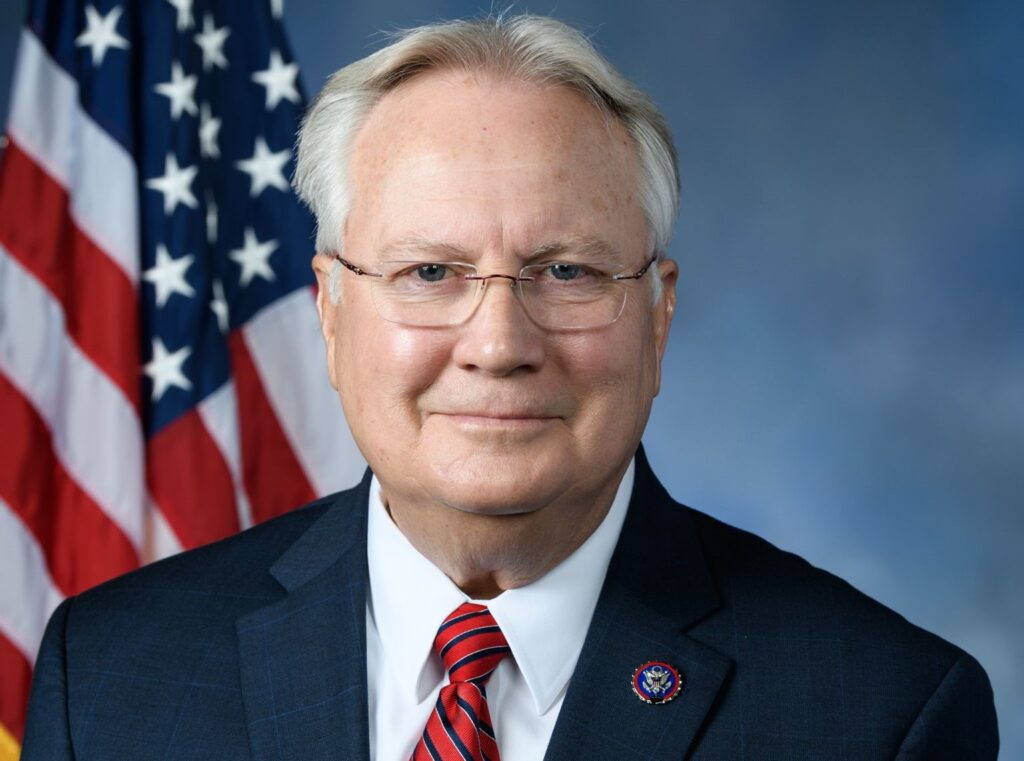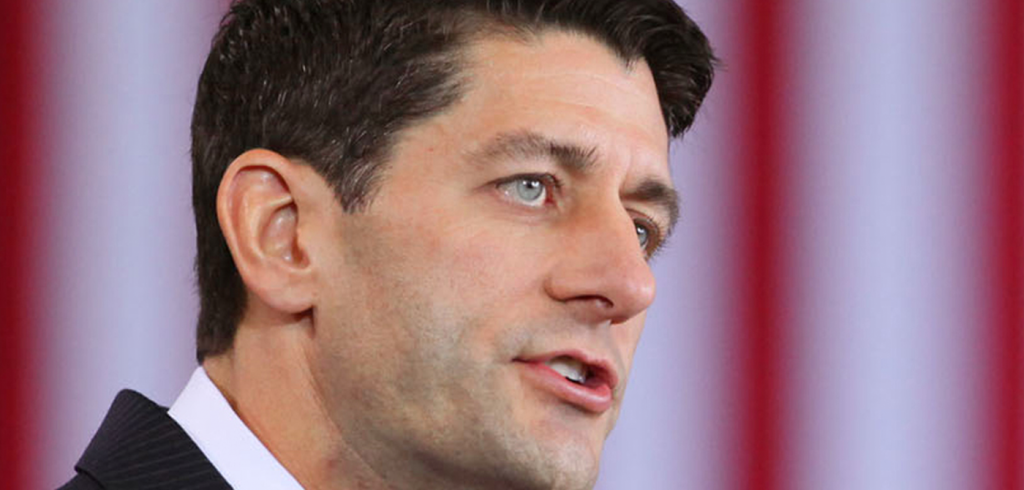Robert Aderholt cosponsors American Confidence in Elections Act

On Wednesday, Congressman Robert Aderholt (R-AL04) announced that he had signed on as an original cosponsor of the American Confidence in Elections Act (ACE Act). “Proud to join my colleagues as an original cosponsor of the American Confidence in Elections Act,” Aderholt said on Twitter. “We are taking the necessary steps towards securing elections, cracking down on states that allow noncitizens to vote, and improving voting access for our service members overseas.” The legislation was introduced by Committee on House Administration Chairman Bryan Steil (R-Wisconsin). The American Confidence in Elections (ACE) Act is reportedly the most conservative election integrity bill to be seriously considered in the House in over 20 years. The comprehensive bill includes nearly 50 standalone bills sponsored by members of the House Republican Conference. The sponsors say that the ACE Act equips states with election integrity tools, implements key reforms in D.C., and protects political speech. “The ACE Act is a conservative, federalist approach to boost voter confidence and encourage more states to implement commonsense election integrity reforms,” Rep. Steil wrote in an op-ed in the Washington Examiner. “The Committee on House Administration has oversight jurisdiction over federal elections. As chairman, I’m committed to upholding the Constitution by ensuring states maintain primary control over administering elections — not the federal government.” “The ACE Act has three main pillars: equipping states with election integrity tools, implementing election integrity reforms in Washington, D.C., and protecting political speech and donor privacy.” Steil continued. “The primary section of the bill is focused on providing states with tools to improve voter confidence. We will remove outdated policies that stand in their way and provide access to information held only by federal agencies.” Steil wrote that states should have access to the Social Security death list to maintain their voter rolls. “Another safeguard states can implement to improve voter confidence is requiring photo ID.” The ACE Act would also prohibit federal funds from going to places that allow noncitizens to vote and stop noncitizens from voting in Washington, D.C. It would also prohibit the District of Columbia from mailing out ballots and require the District to finally implement photo ID. The ACE Act would prohibit federal agencies like the IRS from asking for nonprofit organizations’ donor lists and bring greater transparency and accountability into the federal campaign finance system. In addition to Rep. Aderholt, there are over 100 original House cosponsors of the ACE Act. House Republicans held a press conference on Wednesday to announce the introduction of the legislation. House Majority Leader Steve Scalise (R-Louisiana) said that the ACE Act would “ensure that elections across America will be fair and that people who are legally eligible to vote can actually cast that ballot and that people who aren’t legally eligible to vote can’t undermine the vote of everyone else, because when someone illegally votes they take away the vote from a legally voting American.” “The idea that you have to show a picture ID to vote is common sense to Americans. In fact, polling indicates that about 80% of Americans support the idea that you require an ID to vote, including by the way a strong majority of Democrats support showing ID.” Scalise said. “Let’s go strengthen the sanctity of the vote. Don’t go mail ballots to people who have been off the rolls for years, that died or moved out of state. We have seen that. It is well documented. This bill that Chairman Steil and members of the committee have brought forward is an important step in the right direction to cleaning up our elections and ensuring that everybody who is entitled to vote can get that vote and that people who aren’t eligible can’t deny that vote. Let’s make it easier to vote and harder to cheat. This bill achieves that. I strongly support it and hope to bring it t the House floor.” Alabama Secretary of State Wes Allen joined House Republicans in D.C. for that press conference. Allen also spoke with Congressman Jerry Carl (R-AL01) about the importance of election integrity during his visit to Washington. “I sat down with Alabama Secretary of State Wes Allen to talk about everything Alabama is doing to ensure election integrity in upcoming elections. He is doing an incredible job!” Rep. Carl said on Twitter. Given the partisan divide over election integrity legislation, it is unlikely that the Senate Democrats will advance this legislation even if House Republicans are able to pass it out of the House. A signature from President Joe Biden is also unlikely ahead of the 2024 presidential election. Aderholt is in his 14th term representing Alabama’s Fourth Congressional District. To connect with the author of this story or to comment, email brandonmreporter@gmail.com.
Jerry Carl cosponsors American Confidence in Elections Act

Last week, Rep. Jerry Carl announced that he cosponsored the American Confidence in Elections (ACE) Act. The bill addresses issues in our nation’s federal elections. Representatives Rodney Davis and Bryan Steil introduced the ACE Act, which has been characterized as the Republican alternative to the For the People Act (H.R. 1) and the John R. Lewis Voting Rights Advancement Act (H.R. 4). Carl expressed the need to restore election integrity. “There’s no doubt the 2020 elections had issues, which is why the ACE Act is critical to restoring our election integrity by providing states with important tools to help with the delivery of ballots, verification of signatures, using voter ID, giving observers access to the process, updating voter lists, and conducting post-election audits,” Carl stated. The ACE Act prohibits: Non-citizens from voting and allows states to use REAL ID as proof of citizenship Same-day registration and ballot harvesting Federal funds for payments in support of congressional campaigns Contributions and donations by foreign nationals in connection with ballot initiatives Funding for a potential “Disinformation Governance Board” The ACE Act requires: Photo ID to vote in person or request an absentee ballot Annual list maintenance “With the Democrats’ constant attacks on the integrity of our federal elections, I’m proud to join my colleagues on this important effort to strengthen our elections and guarantee their security. Our elections should always be free, fair, and secure, and this legislation will go a long way to ensuring Americans that their vote matters. It’s time to restore confidence in our elections,” Carl concluded. Alabama Secretary of State John Merrill served as one of three Secretaries of State to provide feedback and recommendations for this legislation. “The passage of the ACE Act is vital to our nation’s future, and I am extremely grateful to Representative Rodney Davis for including me in this historic process. I wholeheartedly endorse the ACE Act and ask that the U.S. Congress give this legislation a fair hearing and full consideration,” Merrill stated.
House Democrats argue wealthy aren’t paying their fair share, Republicans disagree

House Republicans and Democrats went after one another in a hearing Wednesday, arguing over whether America’s most wealthy are paying their fair share of income taxes. The U.S. House Select Committee on Economic Disparity and Fairness in Growth hosted a hearing on tax policy focused on inclusive growth, which led to the debate. “We have the most progressive tax code among any OECD nation, that means we’re taxing the rich a whole lot more than we’re taxing the folks on the lower income,” Rep. Jodey Arrington, R-Texas, said. Most Republicans argued a similar point, whereas Democrats argued that the uber-wealthy didn’t pay enough in income taxes due to tax breaks and needed to pay more. “It is unsustainable for working-class people to continue picking up the tab for tax breaks that the wealthy enjoy, in part due to the Republican Tax Cuts and Jobs Act,” U.S. Rep. Pramila Jayapal, D-Wash., said. To clarify, U.S. Rep. Bryan Steil, R-Wis., asked four witnesses what “fair share” would mean when applied to a federal income tax, asking how much of a billionaire’s income should be taxed. Georgetown Law Professor Dorothy Brown responded, “40-50%, I mean historically we’ve had as high as 70%.” William Gale from the Brookings Institute also said 40-50%. Seth Hanlon at the Center for American Progress and Amy Matsui from the National Women’s Law Center said they didn’t have a particular number in mind. Later, Steil asked the witnesses if the current U.S. tax code skews toward the wealthy, and all five witnesses present said yes. “Well, in some ways, yes, but I think we miss the point too that 40% of the bottom of the income distribution don’t pay income taxes at all,” Angela Rachidi of the American Enterprise Institute said. Near the closing of the hearing, U.S. Rep. Warren Davidson, R-Ohio, asked the witnesses if “deficits matter” when considering tax code. Except for Dr. Rachidi, every witness said that deficits do not matter. Republished with the permission of The Center Square.
Paul Ryan’s retirement sending ripples of uncertainty through GOP

House Speaker Paul Ryan’s abrupt announcement that he will retire rather than seek another term in Congress as the steady if reluctant wingman for President Donald Trump sent new ripples of uncertainty through a Washington already on edge and a Republican Party bracing for a rough election year. The Wisconsin Republican cast the decision to end his 20-year career as a personal one — he doesn’t want his children growing up with a “weekend dad” — but it will create a vacuum at both ends of Pennsylvania Avenue. It will leave congressional Republicans without a measured voice to talk Trump away from what some see as damaging impulses, and it will rob Trump of an influential steward to shepherd his more ambitious ideas into legislation. It’s unusual for a House speaker, third in line to succeed the president, to turn himself into a lame duck, especially so for Ryan, a once-rising GOP star who is only 48 and was the party’s vice presidential candidate in 2012. His decision fueled fresh doubts about the party’s ability to fend off a Democratic wave, fed by opposition to Trump, in November. And it threw the House into a leadership battle that could end up pushing Ryan aside sooner than he intended and crush any hopes for significant legislation before the election. Ryan, though, said he had no regrets after having accomplished “a heckuva lot” during his time in a job he never really wanted. He said fellow Republicans have plenty of achievements to run on this fall, including the tax cuts Congress delivered, which have been his personal cause and the centerpiece of his small-government agenda, even though they helped skyrocket projected annual deficits toward $1 trillion. “I have given this job everything I have,” Ryan said Wednesday. Speculation over Ryan’s future had been swirling for months, but as he dialed up colleagues and spoke by phone with Trump, the news stunned even top allies. Ryan announced his plans at a closed-door meeting of House Republicans. Rep. Mark Walker of North Carolina said an emotional Ryan “choked up a few times trying to get through” his remarks and received three standing ovations. He later briefly thanked Trump in public for giving him the chance to move GOP ideas ahead. While Ryan was crucial in getting the tax cuts passed, a prime Trump goal, he and the president have had a difficult relationship. Trump showed impatience with Congress’ pace in dealing with his proposals, and Ryan had to deal with a president who shared little of his interest in policy detail. Still, for many Republicans, it’s unclear who will be left in leadership to counterbalance Trump. Ryan has been “a steady force in contrast to the president’s more mercurial tone,” said Rep. Mark Sanford of South Carolina. “That’s needed.” The speaker had been heading toward this decision since late last year, said a person familiar with his thinking, but as recently as February he had considered running for another term. His own father died suddenly of a heart attack when he was 16, and though Ryan is in good health, the distance from his family weighed on him. A final decision was made over the two-week congressional recess, which he partly spent on a family vacation in the Czech Republic. Ryan, from Janesville, Wisconsin, was first elected to Congress in 1998. Along with Reps. Eric Cantor and Kevin McCarthy, he branded himself a rising “Young Gun” in an aging party, a new breed of hard-charging Republican ready to shrink the size of government. He was GOP presidential nominee Mitt Romney’s running mate in 2012. Ryan was pulled into the leadership job by the sudden retirement in 2015 of Speaker John Boehner, who had struggled to control the chamber’s restless conservative wing. He has had more trust with the hardliners in the House. “That’s probably his greatest gift to us,” said Rep. Kevin Cramer of North Dakota. “His ability to bridge the vast divide.” House Majority Leader McCarthy, a Californian known to be tighter with Trump, is expected to again seek the top leadership post that slipped from his reach in 2015. He will likely compete with Majority Whip Steve Scalise of Louisiana. Ryan’s announcement came as Republicans are bracing for a potential blue wave of voter enthusiasm for Democrats, who need to flip at least 24 GOP-held seats in November to regain the majority. As the House GOP’s top fundraiser, Ryan’s lame-duck status could send shockwaves through donor circles that are relying on his leadership at the helm of the House majority. He has hauled in $54 million so far this election cycle. Senate Majority Leader Mitch McConnell, who has worked with Ryan, praised his colleague’s tenure. The Democratic House leader, Nancy Pelosi of California, said she hoped Ryan would work constructively on bipartisan goals before he leaves. In Wisconsin, Republicans had no obvious successor in waiting. The most likely GOP candidate for Ryan’s seat is state Assembly Speaker Robin Vos, Republicans in the state said. Another Republican mentioned as a potential candidate is longtime Ryan family friend and backer Bryan Steil, an attorney and member of the University of Wisconsin Board of Regents. Democrat Randy Bryce, a colorful ironworker who has cultivated an “IronStache” moniker, had been Ryan’s best-known challenger, drawing liberal support from around the country. Janesville teacher Cathy Myers has also been running on the Democratic side. The only declared Republicans are Paul Nehlen, who was banned from Twitter earlier this year for posts criticized as racist or anti-Semitic, and Nick Polce, an Army veteran who also co-owns a security consulting firm. While his plans are uncertain once he steps down in January, Ryan has long said being speaker would be his last job in elected office. Others have suggested that an ideal job for the policy wonk could be running a think tank, noting the leader of the conservative American Enterprise Institute recently announced he would be stepping down. Republished with the permission of the Associated Press.


